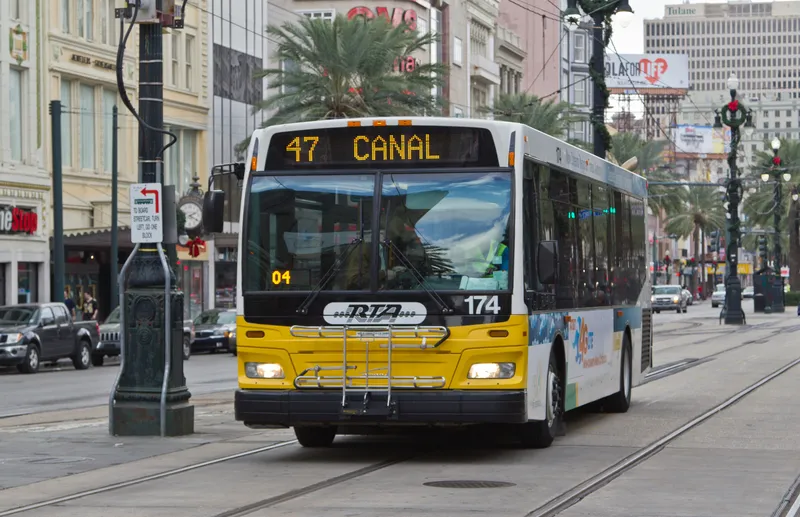
A plan for a major bus rapid transit (BRT) route has been approved in New Orleans, US - currently one of seven of the 50 largest US cities without rapid transit.
New Orleans Regional Transit Authority (RTA) announced the approval of the resolution by the New Orleans City Council regarding the East-West Bank Corridor project from the New Orleans City Council.
The green light means RTA will be able to apply for federal funding from the Infrastructure Investment and Jobs Act (Bipartisan Infrastructure Bill) for 50% of estimated $250-$350 million cost of the project.
RTA says BRT aims to improve equity in transportation, provide relief from traffic congestion and parking, enhance and grow neighbourhoods, and grow the local economy.

RTA is hiring an engineering team to begin developing design in collaboration with the community: it says the scheme will bring 'fast, reliable, world-class' transit services to the Greater New Orleans Region.
“We are proud of the extensive outreach and engagement we conducted with our riders, our community partners, and our elected officials to create a plan of which everyone can be proud," says Lona Edwards Hankins, CEO of New Orleans RTA.
"We remain committed to continuing the dialogue with all of our stakeholders, listening to their needs and concerns, so that we always centre the community in our process going forward.”
Embracing BRT "is a major step toward incorporating some of the nation’s best practices into our transit system in a way that serves all our residents’ needs", Hankins added.
Board chair, commissioner Mark Raymond, Jr, comments: "We know how challenging it is for our riders on the Westbank and New Orleans East to make their destinations quickly and on time. Often, their jobs depend on it.”
RTA says the scheme has the potential to reduce public transit commute times from 90 minutes to 60 minutes, terminus to terminus.
New Orleans RTA is a sub-division of the State of Louisiana which is operated by an independent Board of Commissioners that serves Orleans, Jefferson and St. Bernard Parishes.
The agency operates car and passenger ferries, fixed-route buses, paratransit, streetcar and limited on-demand services.









